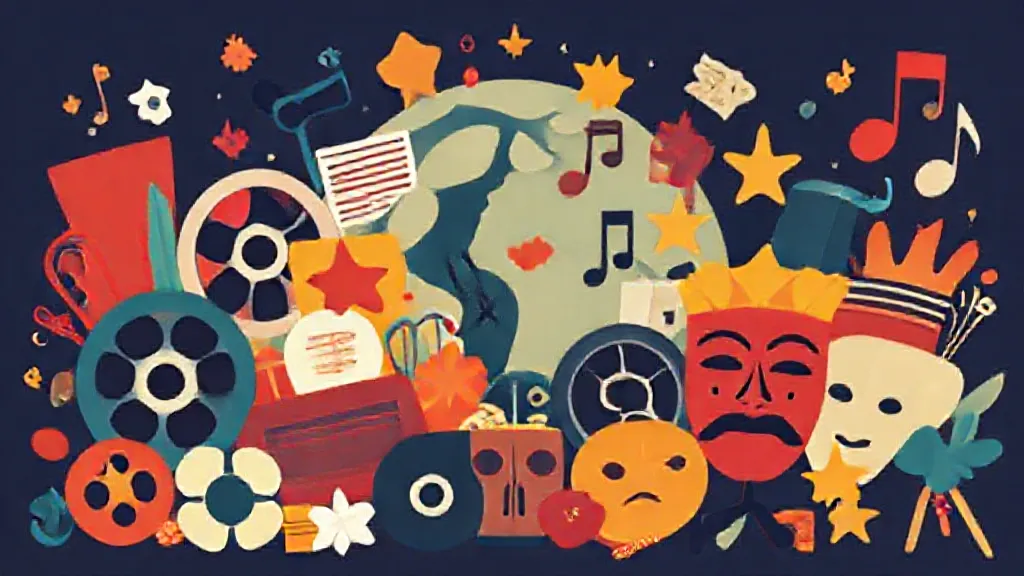Cultural diversity plays a pivotal role in shaping the entertainment industry, influencing everything from film and television to music and theater. This article delves into how the incorporation of varied cultural perspectives not only enriches content but also broadens audience appeal and fosters global understanding. By examining specific examples across different entertainment mediums, we can appreciate the profound impact cultural diversity has on creativity and innovation in storytelling.
The Role of Cultural Narratives in Film and Television
Film and television serve as primary vehicles for cultural expression. Diverse narratives allow for a more comprehensive representation of society, enabling audiences to engage with stories that reflect a multitude of experiences. For instance, films like "Parasite," which showcases the intricacies of class struggle in South Korea, resonate globally due to its universal themes, despite its specific cultural context.
This cross-cultural engagement not only enhances the storytelling but also invites viewers from different backgrounds to find common ground in shared human experiences.
Music as a Universal Language
Music is perhaps the most potent form of cultural expression. Genres such as Reggae, Hip-Hop, and K-Pop have transcended their regional origins to become global phenomena.
The fusion of diverse musical styles, as seen in collaborations like those of Shakira and Maluma or the rise of Afrobeat artists like Burna Boy, demonstrates how cultural diversity can create new sounds that appeal to a wide audience. These collaborations not only bring different cultural elements to the forefront but also promote appreciation and understanding among fans worldwide.
Theater and Performance Arts: A Melting Pot of Cultures
Theater has a long-standing tradition of incorporating cultural diversity, often reflecting the social issues of its time.
Productions like "The Lion King," which draws from African storytelling traditions, or "Hamilton," which reinterprets American history through a diverse cast, illustrate how cultural diversity can reshape narratives and engage audiences. These performances challenge traditional storytelling methods and invite audiences to reconsider historical narratives through a contemporary lens, fostering a deeper connection to the material.
Video Games: A New Frontier for Cultural Exchange
The video game industry has emerged as a significant platform for cultural expression and diversity.
Games like "Overwatch" and "Assassin's Creed" feature characters and narratives inspired by various cultures, promoting inclusivity. These games not only entertain but also educate players about different cultural backgrounds, fostering a sense of global community. The interactive nature of gaming allows players to engage with diverse narratives actively, making cultural diversity a crucial component of modern gaming experiences.
Cultural Festivals: Celebrating Diversity in Entertainment
Cultural festivals around the world, such as the Sundance Film Festival and the Edinburgh Festival Fringe, showcase diverse artistic expressions and provide platforms for underrepresented voices. These events highlight the importance of cultural diversity in entertainment by bringing together artists from various backgrounds, encouraging collaboration, and promoting cross-cultural dialogue. Such festivals not only celebrate diversity but also challenge the mainstream narratives often seen in traditional entertainment venues.
The Economic Impact of Diverse Entertainment
The incorporation of cultural diversity in entertainment also has significant economic implications. By appealing to a broader audience, diverse content can lead to increased viewership, higher box office sales, and greater streaming subscriptions. For example, the global success of films like "Crazy Rich Asians" and "Black Panther" demonstrates that culturally specific narratives can achieve commercial success while also promoting representation.
This economic incentive encourages producers and creators to invest in diverse storytelling, further enriching the entertainment landscape.
Challenges and Opportunities for Cultural Representation
Despite the benefits of cultural diversity in entertainment, challenges remain. Issues such as stereotyping, cultural appropriation, and lack of authentic representation can undermine the positive impacts of diversity.
It is crucial for creators to approach cultural narratives with respect and authenticity, ensuring that the voices of the cultures being represented are heard and valued. Addressing these challenges presents an opportunity for the entertainment industry to evolve and become more inclusive, ultimately leading to richer storytelling.
Conclusion: Embracing Diversity for a Vibrant Future
As the entertainment industry continues to evolve, embracing cultural diversity will be essential for fostering creativity, innovation, and global understanding.
By prioritizing diverse narratives and representations, the industry can create a more inclusive environment that resonates with audiences worldwide. The future of entertainment lies in its ability to reflect the rich tapestry of human experience, inviting everyone to participate in the stories that shape our world.
